CMN 408
Proposal and Grant Writing

1. Course Description
This course provides an introduction to the multidimensional processes of grant-seeking and the strategic principles of writing proposals for venture support. From the perspective of both grant seekers and multidisciplinary peer-review audiences, students will learn how to identify and target funding sources/opportunities, translate project goals and problem statements into clear objectives and hypotheses, and coordinate activities to plan, develop, structure, and articulate feasible and conceptually innovative proposals.
Last Revised
Prerequisites
CMN 313 or CMN 323. Note: This course is available only to Professional Communication and Creative Industries students
Delivery
Lecture: 2 hours, Lab: 1 hour
2. Course Objectives & Learning Outcomes
For undergraduate students, this course aims to
- Introduce concepts, genre system knowledge, practices and strategies of effective grantsmanship and donor-centred fundraising communication and stewardship
- Develop students’ capacities to research prospects and target funding sources and develop problem-based cases for support and feasible, goal-driven proposals for multiple sectors
- Identify current and emerging trends to plan, execute and manage multi-modal communication products for fundraising campaigns, planned giving, and entrepreneurial fundraising
- Apply rhetorical principles and approaches in critical analysis of grants and fundraising discourse
- Assist students in identifying and interrogating central issues in philanthropy, giving behavior, and underlying social, political and ethical implications of grant writing and fundraising activities
Additionally, graduate students will be able to
- Demonstrate knowledge of the literature in grant proposal writing and non-profit fundraising
- Coordinate team-based fundraising campaigns
- Analyze grant writing and fundraising communications through theoretical lenses drawn from a variety of fields such as rhetoric, media studies, and visual communication
3. Topics Covered
- Persuasion and narratology
- Grants culture and its socio-cognitive dimensions
- Proactive and reactive grant seeking: identifying funding opportunities, resources and steps in the grant cycle
- Elements of standard research, arts, corporate/foundation grants and business proposals
- Non-profit/charitable sector: giving behavior and non-profit fundraising methods, including attracting individual support, soliciting major gifts, holding capital campaigns
- Direct response fundraising
- Digital fundraising, e-fundraising and integrated social media campaigns
- Non-profit storytelling and donor engagement
- Special events, sponsorship, crowdfunding and cause-related marketing
4. Teaching Method
Teaching Methods
Classes will consist of interactive lectures, guest lectures, and workshops, in-class and on-line. Students will work both individually and in groups.
Evaluation Methods
Evaluation will be based on at least four assignments, including a letter of intent, grant proposal, an integrated fundraising campaign and a multimodal presentation. Students will be provided with access to appropriate technology and software, as well as workshops introducing these tools.
Graduate students will also be expected to
- lead a seminar discussion and design a learning activity based on peer-reviewed readings
- coordinate a team of students in the development and delivery of an integrated campaign
- prepare a final report or essay
5. Course Materials
Textbooks
Coley, S. M., & Scheinberg, C.A. (2016). Proposal Writing: Effective Grantsmanship, 5th edition. Thousand Oaks, CA: Sage. ISBN 9781483376431 (paperback).
Locke, L. F., Spirduso, W., and Silverman, S. J. (2013). Proposals that Work: A Guide for Planning Dissertations and Grant Proposals, 6th edition. Thousand Oaks, CA: Sage. ISBN 978-1-4522-1685-0 (paperback).
Sargeant, A. & Shang, J. (2017). Fundraising Principles and Practice. Second edition. Wiley: Hoboken, NJ. ISBN: 978-1-119-19649-5. E-book available from Wiley.
Additional readings and videos will be available in D2L.
Graduate students will be assigned additional weekly readings.
6. Policy
6.1 University Policies
Students are required to adhere to all applicable university policies found in their Online course shell in D2L and the Course Outline Policies.
6.2 Print and Digital Copying Guidelines:
Toronto Metropolitan University complies with Canada’s Copyright Act which protects both creators/owners and users of copyrighted materials. Students should familiarize themselves with TMU Copyright policies and procedures, and contact the Copyright and Scholarly Engagement Librarian at copyrt@torontomu.ca for questions, concerns and clarification of the copyright rules.
6.3 Turnitin.com
Turnitin.com is a plagiarism prevention and detection service to which Toronto Metropolitan University subscribes. It is a tool that helps instructors determine the similarity between student work and the work of other students who have submitted papers to the site (at any university), Internet sources, and a wide range of books, journals, and other publications. While it does not contain all possible sources, it gives instructors some assurance that students’ work is their own. No decisions are made by the service; it generates an “originality report,” which instructors must evaluate to judge whether something is plagiarized.
Students agree by taking this course that their written work will be subject to submission for textual similarity review to Turnitin.com. All submitted papers will be included as source documents in the Turnitin.com reference database solely for the purpose of comparing the similarity of such papers. Use of the Turnitin.com service is subject to the terms-of-use agreement posted on the Turnitin.com website. Students who do not want their work submitted to this plagiarism detection service must, by the end of the second week of class, consult with their instructor to make alternative arrangements. Even when an instructor has not indicated that a plagiarism detection service will be used, or when a student has opted out of the plagiarism detection service, if the instructor has reason to suspect that an individual piece of work has been plagiarized, the instructor is permitted to submit that work in a non-identifying way to any plagiarism detection service.
6.4 Email Communication
Toronto Metropolitan University requires that any official or formal email communication from students be sent from their official Toronto Metropolitan University electronic accounts.
6.5 Video and Audio Recording
No video or audio recording is permitted in class without the express permission of the instructor.
7. Learning Management System
Toronto Metropolitan University supports Brightspace by D2L as its official Learning Management System. University Policies governing Brightspace have been documented at the Courses @ Toronto Metropolitan University Privacy and Security website.

